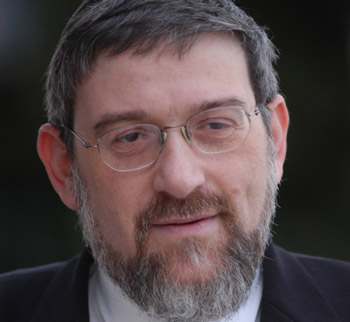JERUSALEM — A quiet revolution is taking place in the Israeli education system. When the next school year begins in September, a third stream of state-approved schools will join the existing secular (mamlachti) and religious (mamlachti dati) school systems that have defined Israeli education since the founding of the state.
According to Rabbi Michael Melchior, founder of Meitarim, the Network for Jewish Democratic Education, Knesset approval in February to implement a comprehensive State Pluralistic Education System will encourage students from both observant and secular backgrounds to study together, with a curriculum based on Jewish values of tolerance, Jewish peoplehood and humanism.
The newly approved stream, which will be known as mamlachti meshalev (integrated and pluralistic) is the culmination of years of effort on the part of Meitarim and a task force led by Rabbi Melchior, that includes Meitarim, as well as leaders from the Tali and Keshet independent schools.
Melchior first raised the idea in the Knesset more than 12 years ago, and Meitarim began with its first school in 1999 in Modi'in and now has over 50 schools with 5000 students throughout the country.
With the Knesset approval, the Israeli government has now committed to assisting in the transition of 30 schools from the state secular and religious education systems to the new pluralistic model by this coming September. By the 2013 school year, Melchior expects to bring an additional 60 pluralistic schools into the system.
“We could easily become the leading educational stream in the not too distant future,” he asserts. According to the new law, any public school can become a pluralistic, integrated school and join the new stream if at least 70 percent of the parents and 50 percent of the teachers are in favor.
Rabbi Melchior, who served in the Knesset between 1999-2009, as former Deputy Education Minister (2005) and Chair of the Knesset Education Committee (2005-2009), told JNS that the current state of Israeli education is “deeply tragic” and has served to reinforce the divisions in Israeli society. “Many secular Israelis have grown up without an understanding that they're part of Judaism, that Judaism is theirs-they think it belongs only to the religious,” asserts Melchior.
“So, you can be a post graduate from Hebrew University who knows less of Jewish concepts than someone in kindergarten in a Reform school in Cincinnati.”
At the same time, Melchior continues, “what has happened in the religious sector is a Judaism that has become more and more narrow-that is something confined to the ritual realm, a limited interpretation of the Torah. Many areas of humanism, social responsibility, social justice, relating to non-Jews, secular Jews or the environment, what Zionism is about, all these are missing, because these ideas have been confined to only part of the population. We started a new stream of thinking-in the seam between the two worlds.” Melchior decries the fact that Israeli students are segregated into schools by religious observance.
Back in the 1970s, Melchior's father, Rabbi Marcus Melchior, was invited to make aliyah from Denmark to introduce Jewish studies as a main subject into the secular school system. “It was vetoed by the religious parties who didn't want it-they wanted to have the monopoly at that time. It never succeeded, it never came from inside or came naturally,” Melchior claims.
Now, Melchior believes that many young Israelis are seeking a more meaningful engagement with Judaism, albeit not necessarily in traditional ways, and the new pluralistic school system will provide an avenue for their involvement.
The new pluralistic stream has garnered support from other concerned Jewish leaders. Writing in support of the legislation in the Jerusalem Post, columnist and former World Jewish Congress leader Isi Leibler commented, “The current system actually institutionalizes divisions among school-age youngsters by segregating them in self-imposed ghettos, which invariably breed intolerance. It also creates a fertile environment in which post-Zionists, Arabs and others are enabled to promote 'a state for all its citizens,' the code message for a state devoid of Jewish values.”
On a practical level, Meitarim will continue supporting existing schools within the Meitarim Network, help open new schools that can later apply to officially become state pluralistic schools, and support the government by providing teacher training and curriculum development.
Meitarim's main backers in the U.S. include the Andrea and Charles Bronfman Philanthropies, the Crown Family Fund, the Harold and Edith Everett Foundation and the Schusterman Foundation.
